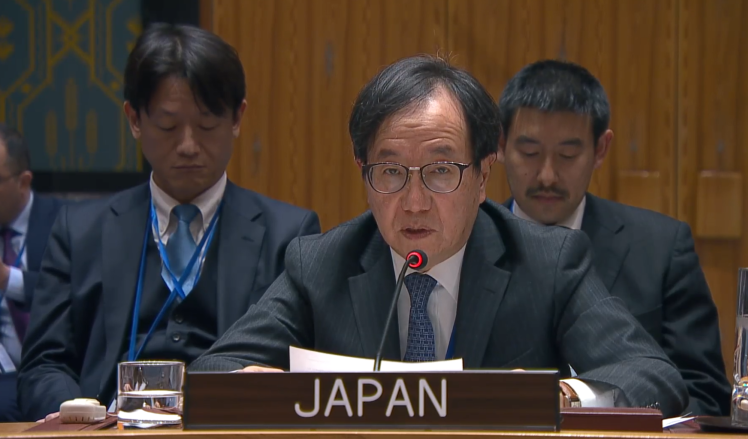Statement by H.E. Ambassador YAMAZAKI Kazuyuki, Permanent Representative of Japan to the United Nations, at the United Nations Security Council Ministerial Briefing on the Situation in Sudan
2024/12/19

(As delivered)
Thank you, Mr. President.
I also thank Director Wosornu, Ms. Lewis, and Mr. Bahr el-Din for their sobering briefings.
Since the draft resolution on protection of civilians in Sudan was vetoed by Russia in November, Japan has stressed that the Security Council must fulfil its duty by taking concrete steps forward.
I therefore express my gratitude to the presidency for convening today’s high-level briefing, which will serve as an opportunity for us to consider what steps can be taken.
Mr. President,
Human security and dignity are at stake in Sudan.
The Rapid Support Forces (RSF)’s deliberate attacks against civilians, including in Zamzam camp, continue to be reported.
Security Council resolution 2736 (2024), demanding that the RSF halt the siege of El Fasher, has not been implemented yet.
It is also reported that the Sudanese Armed Forces (SAF) are responsible for many civilian casualties by bombardment in populated areas.
The number of people forcibly displaced has exceeded 12 million.
This is currently the largest displacement crisis in the world.
More and more people are at risk of sexual and gender-based violence without proper care for the victims and survivors.
Acute food insecurity has been reported. Agricultural activities and the market system have been hindered by the conflict.
With these in mind, I would like to make three points.
First, the only way to end this human rights and humanitarian crisis is immediate cessation of fighting. A coordinated political effort by the United Nations, regional organisations, and influential Member States is vital for the parties to the conflict to return to serious negotiations.
External interference fomenting the conflict and instability must stop now. Japan remains concerned about the continuously reported flow of arms and ammunition as well as financial and logistical support to the warring parties from outside the country.
Second, the international community should scale up its efforts to reach people in need wherever they are. We therefore call on the parties to allow and facilitate full, rapid, safe, unhindered and sustained humanitarian access, including crossline and cross-border activities, and especially by granting visas timely to humanitarian personnels. In this regard, Japan welcomes the opening of additional entry points by the Government of Sudan.
We also need to discuss how the international community can promote local humanitarian actors, address the telecommunication blackout, provide security for humanitarian personnel by respecting Security Council resolution 2730 (2024), and secure the full, equal, meaningful and safe participation of women.
In November, Japan made an additional contribution through UNOPS to develop water supply infrastructure and hospital facilities in Kassala and Red Sea States by providing approximately 5 million USD.
Third, in order to achieve ceasefire and scale up humanitarian assistance, it is necessary to advance our collective efforts to protect civilians in Sudan.
In November, Ambassador Shimizu, Japan’s Special Envoy to the Horn of Africa visited Port Sudan. He met Lieutenant General Al-Burhan of the Transitional Sovereign Council, among others, and discussed the compliance mechanism to ensure implementation of the Jeddah Declaration of Commitment to Protect the Civilians of Sudan, which the Security Council recently considered.
Japan calls on the Security Council members to further deliberate on such a mechanism so that it be robust, innovative and actionable.
Japan continues its dialogue with the Sudanese authorities to help convey the Council’s unified message and achieve peace and stability.
In conclusion, Japan will remain committed to the aspirations of the Sudanese people for peace as a longstanding partner of Africa.
I thank you.
